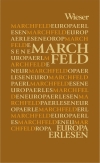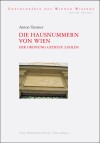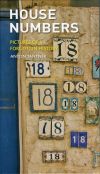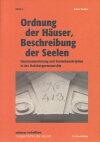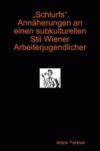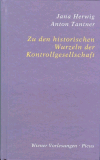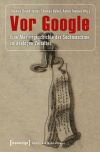Matthew Hannah zum Volkszählungsboykott in der BRD
Larry Frohman hat bei der letzten September in London abgehaltenen Tagung Cultures of Surveillance einen Vortrag zum westdeutschen Volkszählungsboykott von 1983/1987 gehalten und ist daher nur zu berufen, für die aktuelle Ausgabe von Central European History (doi:10.1017/S0008938912000271) folgendes Buch zu rezensieren:
Hannah, Matthew: Dark Territory in the Information Age: Learning from the West German Census Controversies of the 1980s. Surrey: Ashgate, 2010.
Besonders aufschlussreich ist Frohmans Rekapitulation von Hannahs Schlusskapitel, das u.a. den "harten Boykott" der VolkszählungsgegnerInnen behandelt und in diesem Lehrreiches für einen Umgang mit heutigen, zumeist privaten DatensammlerInnen findet:
The final chapter recounts the ultimately successful efforts of state officials to take back their territory by deploying all of the weapons at their disposal to repress a boycott that they regarded as “an essentially criminal, unconstitutional enterprise” (p. 157). Here, Hannah focuses on the Berlin variant of the “hard boycott” strategy, that is, the strategy by which protesters were to accept the census forms from the enumerators, clip off the identifying code, and return the anonymized forms to central collection points, where a constantly growing running total would, the protesters believed, encourage those who opposed the census, but who feared the consequences, to join in in ever greater numbers until the entire census collapsed. On the one hand, Hannah agrees with those contemporary critics who argued that this strategy ultimately made it easier for officials to identify and pick off isolated protesters. On the other hand, however, Hannah argues—and in so doing he moves in the conclusion from a historical account of the boycotts to political theorizing about what we can learn from them—that such a strategy may well offer a model for contesting the collection and use of personal information in the age of the Internet. Hannah argues with a certain degree of plausibility that the central collection agency, by interposing itself as an anonymizing institution between the citizen and the information bureaucracy, represented an archetype of those companies that allow people to browse the Internet and send e-mail anonymously. He then goes on to suggest that such agencies might evolve into the institutional basis for the collection of personal information, for the active, participatory representation of these alternative forms of social knowledge, and, ultimately, for new forms of informational citizenship.
Hannah (Aberystwyth University) verwendet auch anscheinend recht spannende Stasi-Akten zum Thema; die vom BND dürfte es ja wohl für einige Zeit für die Forschung noch nicht geben, wenn sie überhaupt erhalten bleiben und nicht geschreddert werden ;-)
Was Frohmann leider nicht thematisiert, ist die absurde Preisgestaltung des 276-seitigen Buchs, das nur in einer Papierversion erhältlich ist: Knapp 125 Dollar für die von ihm besprochene Fassung, bei Amazon.de ist es immer noch um etwas mehr als 80 Euro zu haben, auf der Verlagshomepage um 58,50 Pfund; für eine weite Verbreitung ist dies nicht gerade förderlich.
Hannah, Matthew: Dark Territory in the Information Age: Learning from the West German Census Controversies of the 1980s. Surrey: Ashgate, 2010.
Besonders aufschlussreich ist Frohmans Rekapitulation von Hannahs Schlusskapitel, das u.a. den "harten Boykott" der VolkszählungsgegnerInnen behandelt und in diesem Lehrreiches für einen Umgang mit heutigen, zumeist privaten DatensammlerInnen findet:
The final chapter recounts the ultimately successful efforts of state officials to take back their territory by deploying all of the weapons at their disposal to repress a boycott that they regarded as “an essentially criminal, unconstitutional enterprise” (p. 157). Here, Hannah focuses on the Berlin variant of the “hard boycott” strategy, that is, the strategy by which protesters were to accept the census forms from the enumerators, clip off the identifying code, and return the anonymized forms to central collection points, where a constantly growing running total would, the protesters believed, encourage those who opposed the census, but who feared the consequences, to join in in ever greater numbers until the entire census collapsed. On the one hand, Hannah agrees with those contemporary critics who argued that this strategy ultimately made it easier for officials to identify and pick off isolated protesters. On the other hand, however, Hannah argues—and in so doing he moves in the conclusion from a historical account of the boycotts to political theorizing about what we can learn from them—that such a strategy may well offer a model for contesting the collection and use of personal information in the age of the Internet. Hannah argues with a certain degree of plausibility that the central collection agency, by interposing itself as an anonymizing institution between the citizen and the information bureaucracy, represented an archetype of those companies that allow people to browse the Internet and send e-mail anonymously. He then goes on to suggest that such agencies might evolve into the institutional basis for the collection of personal information, for the active, participatory representation of these alternative forms of social knowledge, and, ultimately, for new forms of informational citizenship.
Hannah (Aberystwyth University) verwendet auch anscheinend recht spannende Stasi-Akten zum Thema; die vom BND dürfte es ja wohl für einige Zeit für die Forschung noch nicht geben, wenn sie überhaupt erhalten bleiben und nicht geschreddert werden ;-)
Was Frohmann leider nicht thematisiert, ist die absurde Preisgestaltung des 276-seitigen Buchs, das nur in einer Papierversion erhältlich ist: Knapp 125 Dollar für die von ihm besprochene Fassung, bei Amazon.de ist es immer noch um etwas mehr als 80 Euro zu haben, auf der Verlagshomepage um 58,50 Pfund; für eine weite Verbreitung ist dies nicht gerade förderlich.
adresscomptoir -
Volkszaehlung - So, 22. Jul. 2012, 13:17
